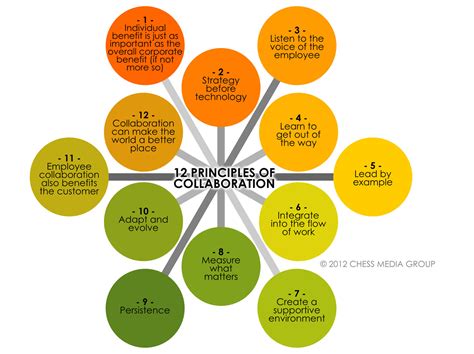The Role of Collaboration in Effective Learning

In today’s rapidly evolving world, the ability to collaborate effectively is more important than ever. Whether in a professional setting, a classroom, or during personal development, collaboration is a powerful tool that enhances learning and drives innovation. As educational models continue to shift from traditional, individualistic approaches to more interactive and participatory frameworks, the role of collaboration in learning has become increasingly prominent. But how exactly does collaboration contribute to effective learning, and why is it essential in the modern landscape?
The Power of Collective Intelligence
Collaboration brings together diverse perspectives, knowledge, and skills. When individuals work together toward a common goal, they pool their cognitive resources to tackle challenges and generate ideas in ways that would be difficult to achieve alone. This collective intelligence allows groups to arrive at better solutions, think more creatively, and problem-solve more efficiently. In academic settings, for example, students collaborating on projects can learn from each other’s strengths—be it in critical thinking, technical skills, or communication.
Active Engagement and Knowledge Retention
One of the key benefits of collaborative learning is the increase in student engagement. Active engagement in learning—through discussion, peer teaching, and problem-solving—has been shown to improve retention and comprehension. When learners are involved in collaborative activities, they move beyond passive reception of information to active processing and application. By teaching others or explaining concepts in their own words, learners solidify their understanding of the material.
Collaboration also offers a dynamic and interactive environment that promotes deeper learning. Students are more likely to ask questions, share ideas, and challenge each other's thinking in a group setting, which fosters critical thinking and intellectual curiosity. This type of engagement is particularly important in complex subject areas where collaboration can help bridge gaps in understanding and offer alternative perspectives.
Building Communication and Interpersonal Skills
Collaboration is not only about sharing knowledge; it’s also about developing essential interpersonal skills. The ability to communicate effectively, listen actively, and negotiate differences of opinion is crucial for success in both academic and professional environments. Group work requires individuals to communicate their ideas clearly, listen to others, and work toward a consensus, even when they disagree. These experiences help learners develop empathy, patience, and teamwork skills, all of which are highly valued in the workplace.
Additionally, collaboration in learning often involves the use of technology, such as digital platforms that enable remote collaboration and team-building across distances. This exposure to various digital tools equips learners with the skills needed to navigate the increasingly digital world of work.
Fostering a Growth Mindset
Collaborative environments often encourage a growth mindset—the belief that intelligence and abilities can be developed through effort, perseverance, and learning from mistakes. In group settings, learners are exposed to different approaches to problem-solving, which helps them view challenges as opportunities for growth rather than insurmountable obstacles. Collaboration fosters a sense of shared responsibility for learning, where successes and failures are seen as collective experiences that everyone can learn from.
In many cases, the process of working with others challenges preconceived notions, inspires new ways of thinking, and pushes individuals out of their comfort zones. This can lead to increased confidence, resilience, and a greater willingness to take risks in their learning journey.
Social and Emotional Benefits
Learning through collaboration also offers significant social and emotional benefits. For many students, working in groups provides an opportunity to connect with peers and build relationships. These social interactions can help combat feelings of isolation or anxiety, particularly for students who may struggle with more traditional, solitary learning environments.
Moreover, collaboration helps learners develop emotional intelligence by encouraging them to consider and respect diverse perspectives. By interacting with others from different backgrounds, students develop a broader understanding of the world around them, and learn to navigate the complexities of group dynamics, such as conflict resolution and managing differing opinions.
Real-World Application and Preparing for Future Careers
Collaboration is an essential skill in the workforce, and the sooner learners engage in collaborative activities, the better prepared they will be for the future. In nearly every professional field—whether it be healthcare, technology, business, or education—individuals must work together to solve problems, drive innovation, and achieve organizational goals. Learning how to collaborate effectively in an academic environment allows students to develop the teamwork and leadership skills they will need in their careers.
Employers consistently cite communication, collaboration, and problem-solving as some of the most important skills for new hires. Students who engage in collaborative learning are more likely to enter the workforce with these competencies, making them valuable contributors to any team.